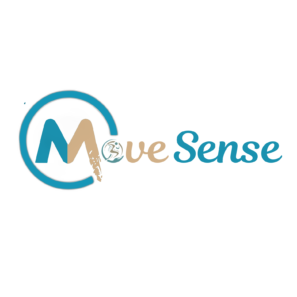What is Jaw & Facial Pain?
Jaw and facial pain refers to discomfort or pain experienced in the areas of the jaw, face, or surrounding regions. This type of pain can be caused by various medical conditions and can manifest in different ways, such as aching, sharp, or throbbing sensations.
Common Causes of Jaw and Facial Pain:
Temporomandibular Joint Disorders (TMJ/TMD):
- Symptoms: Pain or tenderness in the jaw, aching pain around the ear, difficulty chewing or discomfort while chewing, locking of the joint, and clicking or popping sounds when opening the mouth.
- Cause: Issues with the temporomandibular joint, which connects the jawbone to the skull
Sinusitis:
- Symptoms: Inflammation of the sinuses can cause pressure and pain in the face, particularly around the eyes, cheeks, and forehead.
- Cause: Infections or allergies causing sinus inflammation.
Trigeminal Neuralgia:
- Symptoms: Severe, sudden facial pain that feels like an electric shock, usually affecting one side of the face.
- Cause: Irritation of the trigeminal nerve.
Bruxism (Teeth Grinding):
- Symptoms: Soreness in the jaw muscles, headaches, worn teeth, and sometimes earaches.
- Cause: Habitual grinding or clenching of teeth, often during sleep.
Infections:
- Symptoms: Pain and swelling in the face due to infections in the teeth, gums, or bones of the jaw.
- Cause: Bacterial infections such as abscesses.
Injury:
- Symptoms: Pain and possibly swelling or bruising in the face or jaw.
- Cause: Trauma to the face or jaw, such as fractures or dislocations.
What is the TMJ or Temporo-Mandibular Joint?
The jaw joint, known as the Temporomandibular Joint (TMJ), is a complex joint involved in speaking, eating, and chewing. It is quite common for the TMJ to cause pain for individuals seeking physiotherapy in Australia. In fact, the prevalence of temporomandibular joint and muscle disorders (TMJD) ranges between 5% and 12%.
Unlike many chronic pain conditions, TMJ disorders are more common among younger individuals and are at least twice as prevalent in women compared to men.
Temporomandibular joint (TMD), is the second most prevalant musculoskeletal condition causing jaw pain and/or disability. TMD can concern one or both temporomandibular joints (TMJ), and/or the surrounding jaw muscles.
Signs and Symptoms of TMJ Disorders:
Measuring facial pain and TMJD is complex due to the lack of a standard definition for TMJD. It is typically assessed by inquiring about various symptoms, which may include:
- Jaw pain or tenderness
- Jaw clicking or clunking
- Sensations of jaw catching or locking
- Tightness or aching in the facial, forehead, or ear regions
- Associated headaches or neck stiffness
- Teeth grinding, clenching, or bruxism
- Possible facial pins and needles or tingling, which may be associated with tooth pain
Individuals with TMD often grind or clench their teeth. TMD can lead to symptoms such as TMJ headaches, ear pain, dizziness, and upper neck pain. Some patients with TMJ disorders report difficulties with eating, speaking, or singing. Tinnitus, or ringing in the ears, may also be associated with TMJ dysfunction.
The most common causes of TMD include:
- Dysfunction of the masticatory (chewing) muscles
- Displacement or derangement of the TMJ articular disc
- Bruxism: Nocturnal teeth grinding that increases pressure on the TMJ and causes asymmetrical movement
- Occlusal Problems: Issues such as a poor bite, asymmetrical bite, or retrognathic conditions (underbite or overbite)
Contributory factors include:
- Mandibular misalignment from occlusal appliances or orthodontic treatments
- Removal of wisdom teeth
- Prolonged mouth opening, such as during dental procedures
- Poor cervical posture
- Myofascial pain
- Neuropsychological factors
- Stress
How MoveSense can help with TMJ recovery?
Many people with severe jaw pain might consider going for trigger point injections or surgery. However, these methods are expensive and have no guarantee of relief. At MoveSense, we offer physical therapy that provides results without risking further pain. After assessing your injury and the affected area, we initiate a series of therapies, including massages, soft tissue mobilization, and ultrasound.
With our therapists to take care of you, you’ll be on the path to holistic recovery right away.
At MoveSense, Sneha Gautam(Head Physiotherapist) has received advanced training in the intricate anatomy of the mouth, jaw, head, and neck, as well as in the most effective evidence-based management strategies for TMD.
MoveSense physiotherapists can assist with your MD through a combination of education, various manual therapy techniques, upper cervical mobilization or manipulation, dry needling, and guidance on managing TMD symptoms and improving maximum mouth opening. Their manual techniques include intra-oral myofascial release, massage therapy for masticatory muscles, and neck mobilization.
We recognize that each individual requires a personalized recovery program and understand that jaw pain can stem from various factors. We can assess whether TMJ dysfunction, external muscular issues, neural sensitivity, neck problems, or a combination of these factors are contributing to your pain.
Our goal is to conduct a thorough assessment, alleviate initial symptoms, and assist in your recovery by addressing the root cause of the problem. In some cases, this may involve collaborating with other healthcare professionals.
Our highly trained physiotherapists will perform a comprehensive evaluation of your condition and develop a full treatment, education, and exercise program in collaboration with you.
Treatment may include a combination of passive joint mobilization, spinal manipulation, and exercises. Dry needling or laser treatment may also be used to help relieve symptoms.
Our physiotherapists will explain your assessment results in detail, work with you to determine the necessary steps, and schedule future appointments for ongoing treatment. They will provide written information and ongoing education on exercises to help heal and strengthen your neck.
We can also offer advice and guidelines for managing acute jaw pain.
We are dedicated to addressing the challenges of facial and jaw pain and dysfunction and take pride in the successes we achieve in this area. If you have jaw pain or are concerned about a stiff or clicking jaw, please call us today or book an appointment online.
- Need Assistance?
